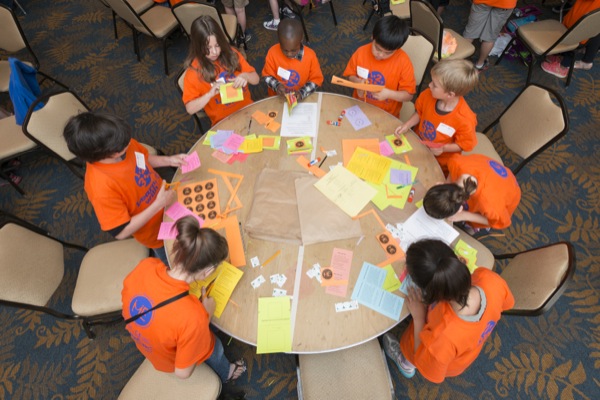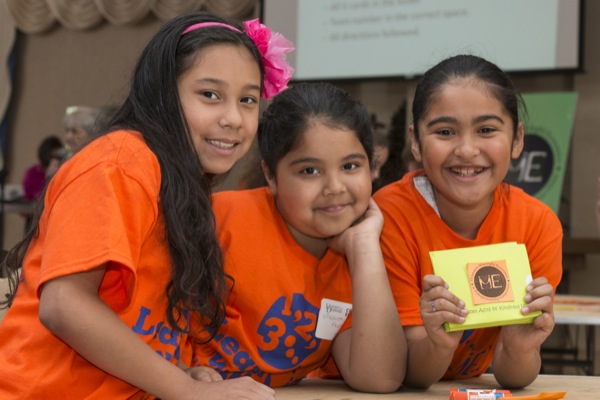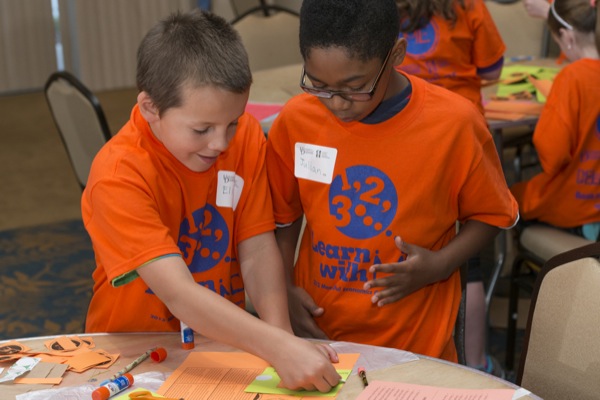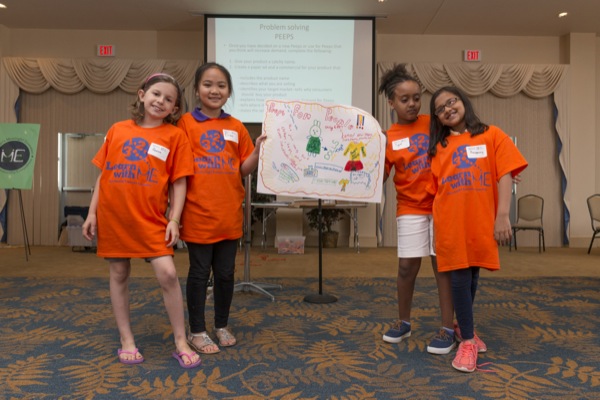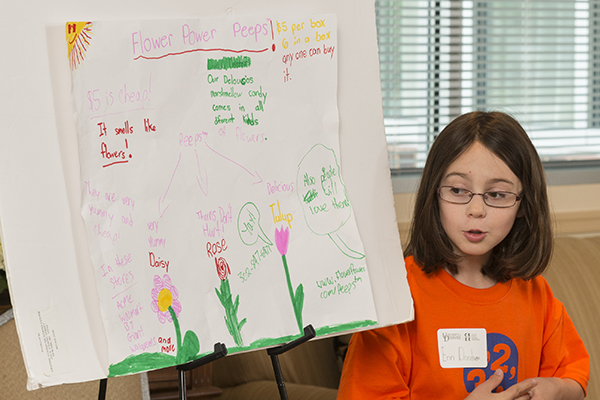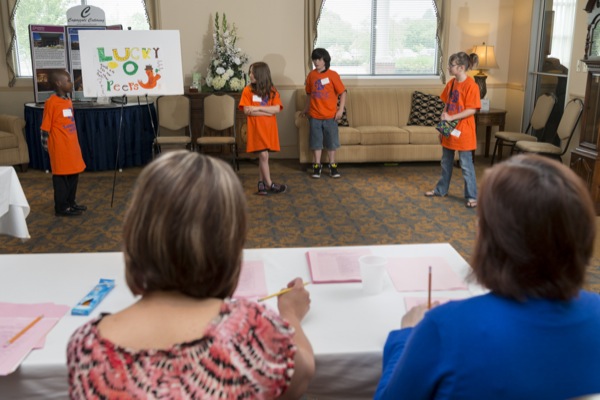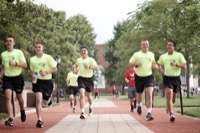Sugarcoated economics
Meaningful Economics teams create solutions to boost Peeps demand
2:19 p.m., May 30, 2013--If Willy Wonka had gotten his hands on a modern coffee machine, his invention probably would have involved something magically sweet. In fact, it might have looked something like the “Marshmello Peep Maker,” a nifty, Keurig-like machine that, in one simple step, pops out any style of the soft, sugary snack a consumer could want.
“Tired of having to go to the store to get your Peeps? Have a Peep any time you want with our Peep maker that will make as many Peeps as you want whenever you want without having to wait for them to be produced at a factory and shipped to the store,” students from Jones Elementary School told a group of judges as they presented their winning product in Delaware’s 27th annual Meaningful Economics and Entrepreneurship (ME) Competition.
People Stories
'Resilience Engineering'
Reviresco June run
Held for four days over the past two weeks in Newark and Georgetown, the product invention was just one solution to a problem-solving activity in the ME Competition, which is designed to provide third through sixth grade students the chance to demonstrate their knowledge of economics, entrepreneurship and personal finance.
The activity called for student teams to help Just Born Inc., the family-owned business that produces the marshmallow candy, Peeps, by creating a new design or new use for its sweet treats to help increase demand for the product.
As part of that challenge, students needed to give the product or service a catchy name, determine a market, outshine their competition, price the product and plan on modes of distribution and selling. They then needed to prepare a strategy and a commercial to present to a panel of professional judges.
While the Peep maker took home top honors (it also had a sugar-free Peep-making option for diabetic consumers) runners up from 138 student teams from 25 schools brainstormed sweet product ideas that would have made Wonka proud.
Is your dessert tired and boring? Then liven it up with “St. Peep,” the invention by the second-place team from Brader Elementary School that “puts flavor-y fun in your dessert in blueberry, cherry or sour apple” and always comes out “Peep-tastic.”
For the consumer not interested in eating Peeps, students from West Park Elementary School addressed those needs by thinking outside the box. The team took home third place with their “Peep Roof and Pipe Solvent.” Have a drip in your roof? A leak in your pipe? Stick a Peep in it, said the students, who designed their product “for people who have leaks in their homes.”
Taking fourth honors was a team from Downes Elementary School, which created “Flower Power Peeps,” a new style for the candy line that not only looks like daisies, roses or tulips but smells like them, too.
Some other student solutions included “Deep Peep,” a new and improved larger Peep candy that looked like a submarine with a little Peep peeking out the window; “CameoPeeps,” camouflage marshmallow candies designed to remind people of family members overseas; and “Skeep,” a product that lets the consumer sculpt their very own Peep.
Volunteer judges included but were not limited to representatives from State Farm, Bank of America, Wells Fargo, Discover and Delaware Technical Community College at Georgetown.
The sweet problem-solving activity was just one part of the ME Competition. During the event teams also participated in a written test as well as a production activity in which teams organized their members efficiently to make as many products as possible.
This year’s production activity, developed by the University of Delaware’s Center for Economic Education and Entrepreneurship (CEEE) and the Delaware Financial Literacy Institute, called for students to make “Random Acts of Kindness Wallets.”
The ME Competition is sponsored by CEEE, the Delaware Council on Economic Education and the Delaware Financial Literacy Institute in partnership with Bank of America and Discover.
Article by Kathryn Meier
Photos by Evan Krape






